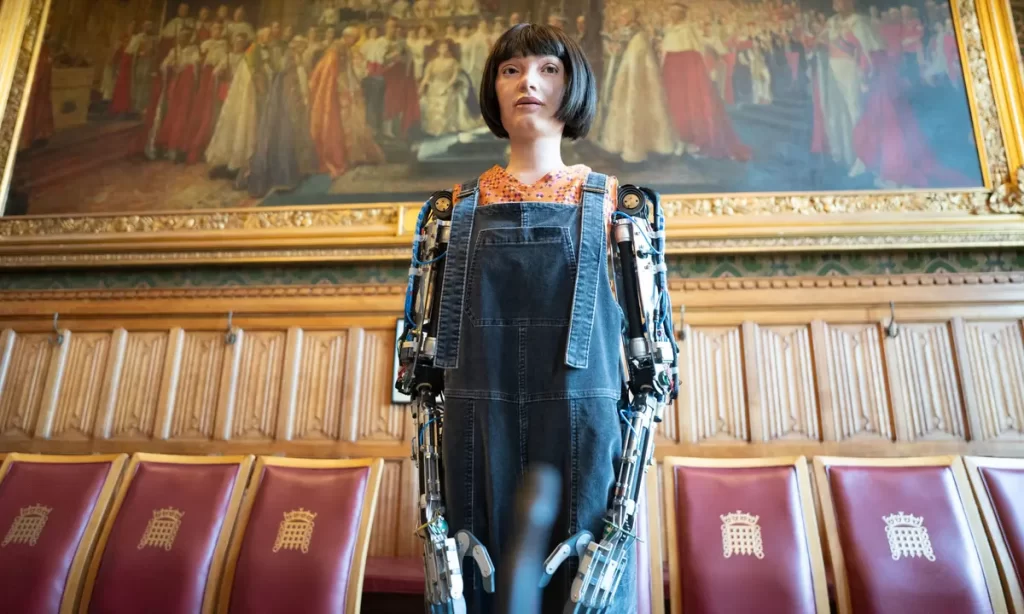
In a groundbreaking hearing, a robot “gave evidence” to a House of Lords committee on Tuesday – where it read typos from its pre-written script, struggled to hear questions, and needed to be rebooted halfway through the session.
“Ai-Da”, described by its creator, Aiden Meller, as “the world’s first ultra-realistic robot artist”, appeared in front of the Lords communications and digital committee as part of its inquiry into the future of the creative industries in the UK.
The chair of the committee, Tina Stowell, emphasised at the outset that it was “a serious inquiry”, before explaining to Meller that “the robot is providing evidence but it is not a witness in its own right, and it does not occupy the same status as a human. You as its creator are ultimately responsible for its statements”.
Although a physical robot arrived in Westminster Palace for the hearing, Ai-Da was, Meller said, “a combined collaborative persona”, with “many algorithms … very different algorithms for very different outcomes”.
“So she has a set of algorithms for drawings, she has a set of algorithms for paintings, she has a set of algorithms to do speaking, or writing using the AI language mode.” During the hearing, some of those algorithms worked better than others.
Questions had been submitted in advance of the appearance “so that we can get a quality response”, with each of the members of the committee asking in turn and receiving a pre-prepared answer. The results were, Meller said, generated by “an AI language model”, but the hand of a human puppet-master was also evident.
At one point, asked by the crossbench peer Deborah Bull: “How do you produce art?”, the robot explained: “I produce my paintings by cameras in my eyes, my AI algorithms and AI robotic arm to paint on canvas, which result in visually appealing images from my poetry using neutral [sic] networks,” clearly pronouncing the misspelled word “neural”.
A few minutes later, in response to a greeting from the Liberal Democrat peer Lynne Featherstone, Ai-Da shut down altogether. After putting a pair of sunglasses on the robot’s face – “when we reset her she sometimes can pull quite interesting faces”, Meller explained – and scrabbling at a power socket, Ai-Da was rebooted.
“The role of technology in creating art will continue to grow,” it told the baroness, “as artists find new ways to use technology to express themselves and reflect and explore the relationship between technology, society, and culture.”
























